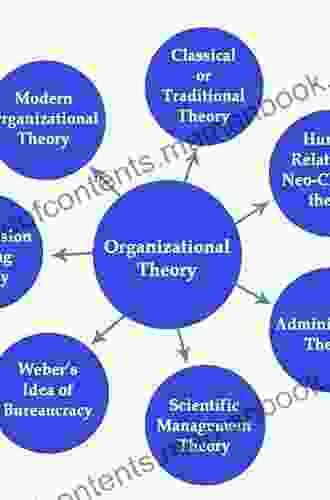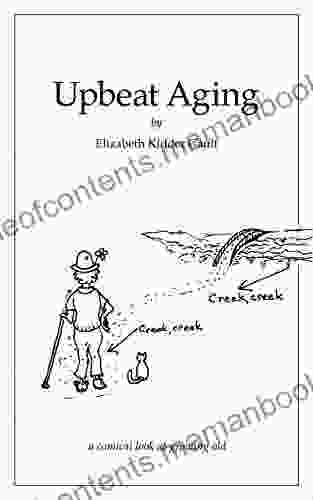Leadership in Education: Organizational Theory for the Practitioner

Leadership is a complex and multifaceted concept that has been studied by researchers for centuries. In the field of education, leadership is particularly important, as it can have a significant impact on student learning and achievement.
4.6 out of 5
| Language | : | English |
| File size | : | 17471 KB |
| Screen Reader | : | Supported |
| Print length | : | 374 pages |
There are many different theories of leadership, each with its own unique perspective on what it means to be a leader and how to lead effectively. In this article, we will explore some of the most common leadership theories and discuss how they can be applied to the practice of education.
Trait Theories of Leadership
Trait theories of leadership focus on the personal characteristics of leaders. They argue that certain traits, such as intelligence, charisma, and extroversion, are essential for effective leadership.
One of the most well-known trait theories of leadership is the "Great Man" theory, which suggests that leaders are born with certain innate qualities that make them destined to lead. However, research has shown that there is no single set of traits that all successful leaders share.
Another trait theory of leadership is the "charismatic" theory, which suggests that leaders are able to inspire and motivate others by their personal charisma. Charismatic leaders are often able to create a strong sense of loyalty and commitment among their followers.
Behavioral Theories of Leadership
Behavioral theories of leadership focus on the behaviors of leaders. They argue that effective leadership is not about having certain traits, but rather about engaging in specific behaviors that inspire and motivate others.
One of the most well-known behavioral theories of leadership is the "transformational" theory, which suggests that leaders are able to transform their followers into more highly motivated and effective individuals. Transformational leaders are able to create a shared vision for the future and inspire their followers to work towards achieving that vision.
Another behavioral theory of leadership is the "transactional" theory, which suggests that leaders are able to motivate their followers by exchanging rewards for good performance. Transactional leaders are able to create a clear structure for their followers and provide them with the resources they need to succeed.
Contingency Theories of Leadership
Contingency theories of leadership suggest that the most effective leadership style depends on the situation. They argue that there is no one-size-fits-all approach to leadership and that the best leaders are able to adapt their style to the specific needs of their followers and the situation at hand.
One of the most well-known contingency theories of leadership is the "situational" theory, which suggests that the most effective leadership style depends on the maturity level of the followers. Situational leaders are able to adjust their style to match the needs of their followers and help them to develop and grow.
Another contingency theory of leadership is the "path-goal" theory, which suggests that the most effective leadership style is the one that helps followers achieve their goals. Path-goal leaders are able to create a clear path for their followers to follow and provide them with the support and resources they need to succeed.
Applying Leadership Theories to the Practice of Education
The various leadership theories discussed above can be applied to the practice of education in a variety of ways. For example, trait theories can be used to identify and develop the leadership qualities of teachers and administrators. Behavioral theories can be used to train teachers and administrators in effective leadership behaviors. And contingency theories can be used to help teachers and administrators adapt their leadership style to the specific needs of their students and the school environment.
By understanding and applying the principles of leadership, educators can create more effective learning environments for their students.
Leadership is a complex and multifaceted concept, but it is essential for effective education. By understanding and applying the principles of leadership, educators can create more effective learning environments for their students.
In this article, we have explored some of the most common leadership theories and discussed how they can be applied to the practice of education. We encourage you to explore these theories further and to apply them to your own leadership practice.
4.6 out of 5
| Language | : | English |
| File size | : | 17471 KB |
| Screen Reader | : | Supported |
| Print length | : | 374 pages |
Do you want to contribute by writing guest posts on this blog?
Please contact us and send us a resume of previous articles that you have written.
 Top Book
Top Book Novel
Novel Fiction
Fiction Nonfiction
Nonfiction Literature
Literature Paperback
Paperback Hardcover
Hardcover E-book
E-book Audiobook
Audiobook Bestseller
Bestseller Classic
Classic Mystery
Mystery Thriller
Thriller Romance
Romance Fantasy
Fantasy Science Fiction
Science Fiction Biography
Biography Memoir
Memoir Autobiography
Autobiography Poetry
Poetry Drama
Drama Historical Fiction
Historical Fiction Self-help
Self-help Young Adult
Young Adult Childrens Books
Childrens Books Graphic Novel
Graphic Novel Anthology
Anthology Series
Series Encyclopedia
Encyclopedia Reference
Reference Guidebook
Guidebook Textbook
Textbook Workbook
Workbook Journal
Journal Diary
Diary Manuscript
Manuscript Folio
Folio Pulp Fiction
Pulp Fiction Short Stories
Short Stories Fairy Tales
Fairy Tales Fables
Fables Mythology
Mythology Philosophy
Philosophy Religion
Religion Spirituality
Spirituality Essays
Essays Critique
Critique Commentary
Commentary Glossary
Glossary Bibliography
Bibliography Index
Index Table of Contents
Table of Contents Preface
Preface Introduction
Introduction Foreword
Foreword Afterword
Afterword Appendices
Appendices Annotations
Annotations Footnotes
Footnotes Epilogue
Epilogue Prologue
Prologue Taylor Neptune
Taylor Neptune Joyce Reid
Joyce Reid Kishore Mahbubani
Kishore Mahbubani Elizabeth Goodleigh
Elizabeth Goodleigh David F Ciambrone
David F Ciambrone Jamie Colwell
Jamie Colwell Cordelia Castel
Cordelia Castel Luz Calvo
Luz Calvo Carlos Benson
Carlos Benson Angela Ferraro Fanning
Angela Ferraro Fanning Sheri Bell Rehwoldt
Sheri Bell Rehwoldt Jona Oberski
Jona Oberski Katsuhiro Hayashi
Katsuhiro Hayashi Jackie Collins
Jackie Collins Steve Winder
Steve Winder Andrew Vonnegut
Andrew Vonnegut Simon Worrall
Simon Worrall Melody Rogers
Melody Rogers Maangchi
Maangchi Amanda Oosthuizen
Amanda Oosthuizen
Light bulbAdvertise smarter! Our strategic ad space ensures maximum exposure. Reserve your spot today!
 Clarence MitchellFollow ·19.2k
Clarence MitchellFollow ·19.2k Deion SimmonsFollow ·15.8k
Deion SimmonsFollow ·15.8k Morris CarterFollow ·16.3k
Morris CarterFollow ·16.3k Stan WardFollow ·13.8k
Stan WardFollow ·13.8k Jack ButlerFollow ·9.9k
Jack ButlerFollow ·9.9k Jacob FosterFollow ·11.6k
Jacob FosterFollow ·11.6k John UpdikeFollow ·19.8k
John UpdikeFollow ·19.8k Shannon SimmonsFollow ·8.7k
Shannon SimmonsFollow ·8.7k

 Derek Bell
Derek BellLike An Eagle Alta Mabin: A Literary Journey Through the...
Like An Eagle Alta Mabin is a powerful...

 Garrett Powell
Garrett PowellOne in the Way of Dan: A Complex and Nuanced Novel
Dan is a successful...

 Foster Hayes
Foster HayesThe Ultimate Air Fryer Cookbook for Beginners: A...
Welcome to...

 Paulo Coelho
Paulo CoelhoFun Guessing Game From Cute Pictures: The Best Gift for...
Looking for a fun...

 Dan Henderson
Dan HendersonEnglish Poetry About Modern Day Japan: A Journey Through...
Step into the realm where...

 Jamie Blair
Jamie BlairThe Enigma of Patricide Dave Harris: A Journey into the...
The annals of true crime are replete with...
4.6 out of 5
| Language | : | English |
| File size | : | 17471 KB |
| Screen Reader | : | Supported |
| Print length | : | 374 pages |











